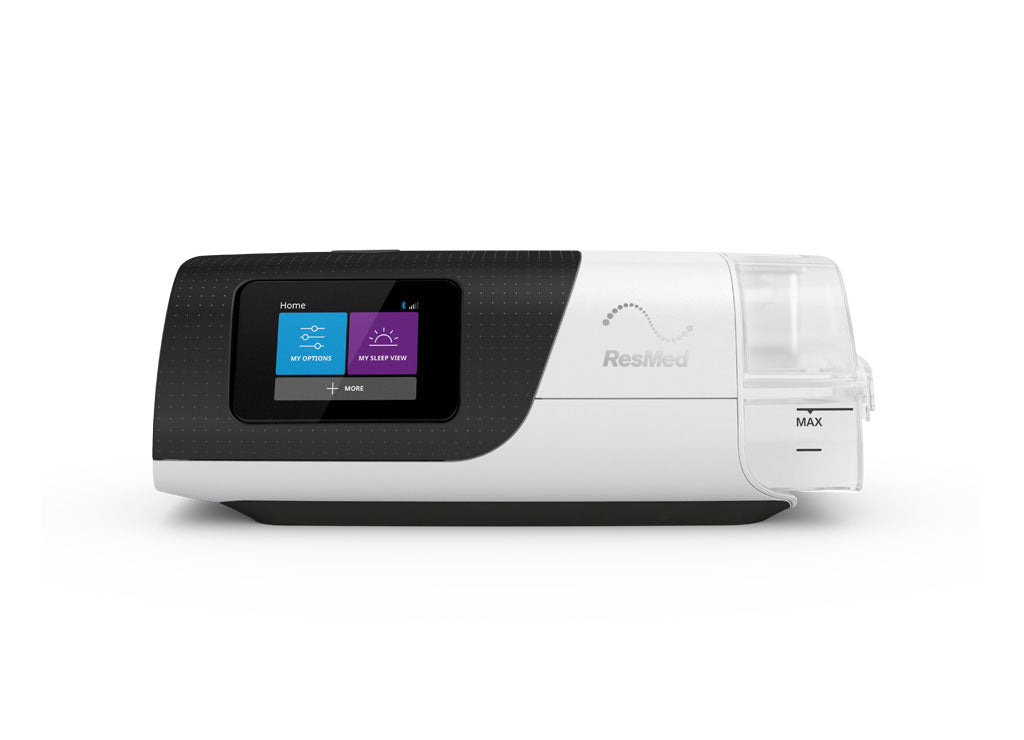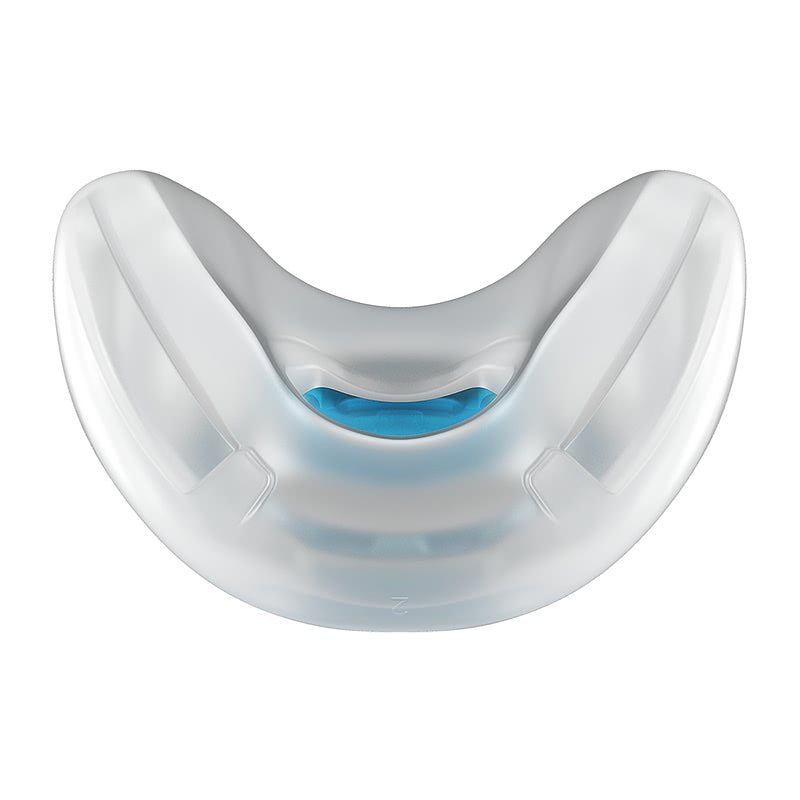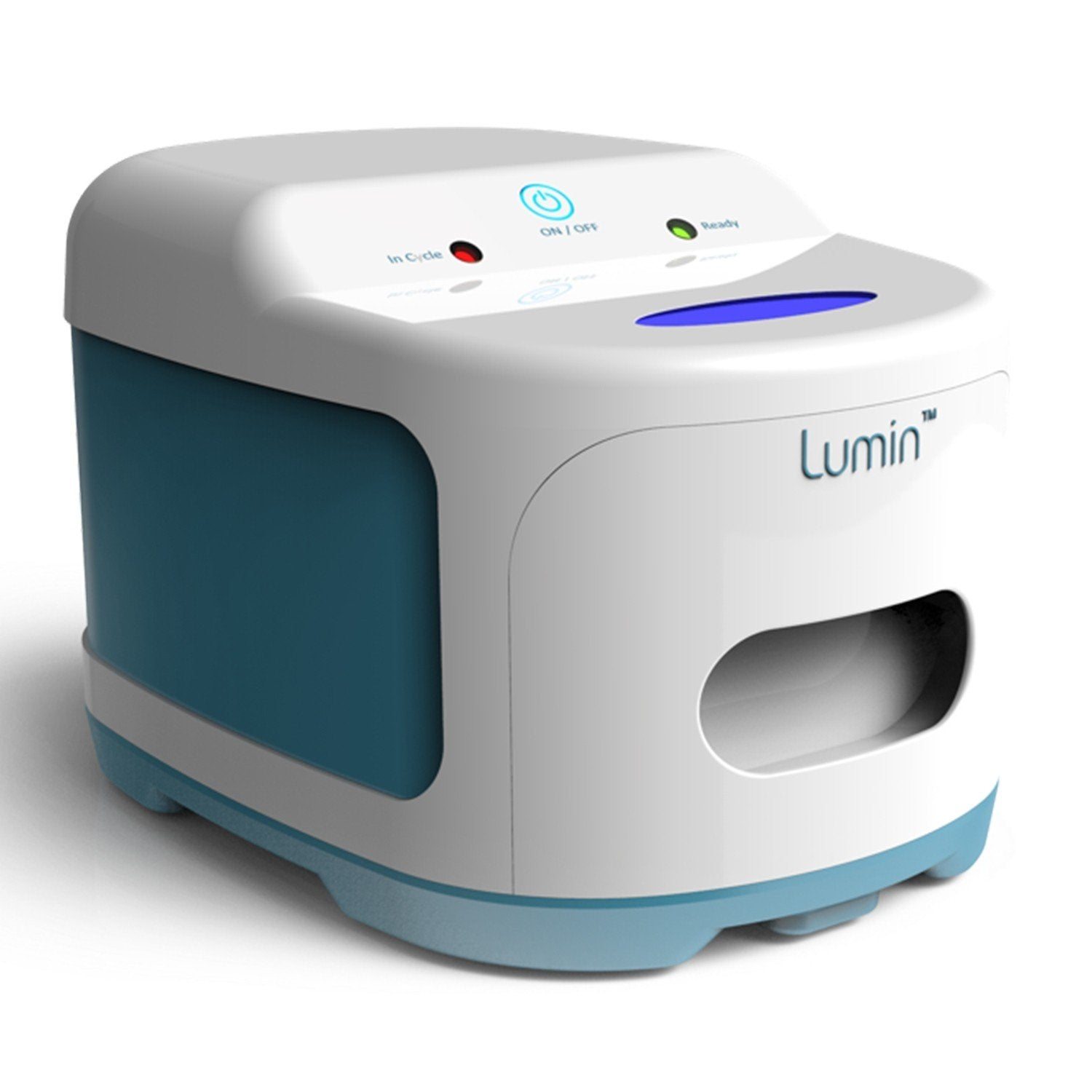
Maîtriser les machines CPAP : votre guide complet
Share
Les appareils CPAP sont utilisés pour traiter l'apnée du sommeil, un trouble du sommeil caractérisé par des pauses respiratoires ou une respiration superficielle pendant le sommeil. Il existe différents types d'apnée du sommeil, notamment l'apnée obstructive du sommeil (AOS), l'apnée centrale du sommeil (ACS) et le syndrome d'apnées complexes du sommeil (SAS-Comp). Le type d'appareil CPAP qui vous sera prescrit dépendra de votre type d'apnée du sommeil, de votre niveau de confort et de vos habitudes respiratoires. Il est essentiel de consulter votre professionnel de santé afin de déterminer l'appareil CPAP le mieux adapté à vos besoins spécifiques.
Lors de l'utilisation d'un appareil CPAP, le choix du bon type de masque est crucial pour le confort et l'efficacité. Différentes options s'offrent à vous.
Le traitement de l'apnée du sommeil fait souvent appel à un appareil de PPC (pression positive continue). Cet appareil délivre de l'air sous pression via un tube dans un masque porté pendant le sommeil. En maintenant les voies respiratoires ouvertes, l'appareil de PPC prévient les pauses respiratoires caractéristiques de l'apnée du sommeil. Les appareils APAP et BiPAP sont également utilisés comme options thérapeutiques, chacun offrant des caractéristiques uniques pour répondre aux besoins individuels.
Les fournitures CPAP sont des composants essentiels d'un appareil CPAP qui doivent être remplacés régulièrement pour garantir l'efficacité du traitement. Ces fournitures comprennent le masque, la tubulure, les filtres et le réservoir d'eau. Il est recommandé de télécharger une fiche de conseils sur les fournitures CPAP pour obtenir une liste utile de toutes les pièces de rechange et des indications sur le calendrier de remplacement. Il est également important de vérifier auprès de votre assurance la prise en charge de ces fournitures, car chaque assureur a des calendriers de remplacement différents.
L'utilisation d'un appareil CPAP (pression positive continue) est un traitement efficace contre l'apnée du sommeil. Elle garantit que vos voies respiratoires restent ouvertes pendant le sommeil, permettant ainsi un apport adéquat en oxygène. En améliorant la qualité du sommeil, les appareils CPAP peuvent contribuer à réduire le risque de maladie cardiaque et d'accident vasculaire cérébral. Cette méthode de traitement est essentielle pour gérer les troubles respiratoires liés au sommeil et favoriser la santé cardiaque globale.
Le plus petit appareil CPAP au monde offre un traitement pratique et nomade aux personnes souffrant d'apnée du sommeil. Malgré sa taille compacte, cet appareil innovant offre un traitement efficace pour un sommeil réparateur. Conçu pour être portable et facile à utiliser, il est idéal en voyage ou au quotidien.
L'appareil CPAP, également appelé appareil à pression positive continue, est un appareil de traitement de l'apnée du sommeil qui aide les personnes à mieux respirer pendant leur sommeil. Il ajuste automatiquement la pression d'air pour compenser les changements de position ou les médicaments qui peuvent avoir modifié votre respiration. Cela garantit que vous recevez la pression d'air nécessaire. L'appareil CPAP, avec ses capacités d'auto-ajustement de la pression et son humidificateur chauffant intégré, s'impose comme un outil essentiel dans le traitement de l'apnée du sommeil. Sa connectivité sans fil, sa détection avancée des événements et ses fonctions d'assistance aux patients contribuent à une expérience de traitement du sommeil confortable et efficace.
En assurant la liberté des voies respiratoires et un apport adéquat en oxygène pendant le sommeil, les appareils CPAP contribuent grandement à améliorer la qualité du sommeil. Ils réduisent non seulement le risque de maladies cardiaques et d'accidents vasculaires cérébraux, mais contribuent également à la gestion des troubles du sommeil.
L'appareil CPAP est un outil essentiel pour les personnes souffrant d'apnée du sommeil. Il fournit une pression positive continue pour maintenir les voies respiratoires ouvertes pendant le sommeil. Cependant, il est important de respecter la confidentialité des données personnelles lors de l'utilisation de tels appareils. Les utilisateurs doivent connaître leurs droits concernant le traitement de leurs données personnelles, notamment le droit de refuser le traitement lié à la publicité ciblée. En comprenant et en exerçant ces droits, les utilisateurs peuvent protéger leurs informations personnelles tout en bénéficiant des effets thérapeutiques de l'appareil CPAP.
Le harnais d'un masque CPAP est essentiel pour le maintenir bien en place pendant votre sommeil. Réglable et confortable, il garantit que le masque reste en place toute la nuit sans gêne ni perturber votre sommeil. Le harnais est un élément essentiel de l'appareil CPAP. Il fonctionne en conjonction avec le masque et le tube pour fournir une thérapie efficace par pression positive continue. Il existe différents types de masques, tels que les masques faciaux, les masques narinaires et les masques nasaux. Un masque facial couvre à la fois le nez et la bouche, ce qui le rend adapté aux personnes qui respirent par la bouche pendant leur sommeil. Les masques narinaires sont dotés d'un petit coussinet qui s'adapte aux narines, offrant un confort optimal aux personnes ayant une barbe ou portant des lunettes. Il est important de trouver un masque bien ajusté et assurant une bonne circulation de l'air pour profiter pleinement des avantages d'un appareil CPAP.
L'utilisation d'un appareil CPAP peut être très bénéfique pour les personnes souffrant d'apnée du sommeil en leur fournissant un apport continu d'oxygène pendant leur sommeil, prévenant ainsi les interruptions respiratoires. Avec le temps, les avantages de l'utilisation de la CPAP s'accentuent. Pour une utilisation optimale de l'appareil, il est important de le mettre en marche correctement, d'ajuster les paramètres comme la rampe, de bien fixer les sangles et de pratiquer des exercices de relaxation pour réduire l'anxiété associée à l'utilisation de la CPAP. De plus, l'utilisation d'air chaud humidifié peut contribuer à soulager l'inconfort ou la sensation de brûlure dans les poumons pouvant survenir lors de l'inhalation d'air froid et sec lors de l'utilisation de l'appareil CPAP.
Si vous ou l'un de vos proches avez reçu un diagnostic d'apnée du sommeil, vous avez probablement entendu parler des appareils CPAP. CPAP, ou ventilation en continu
Les appareils à pression positive continue (PPC) sont couramment utilisés pour traiter l'apnée obstructive du sommeil, un trouble du sommeil caractérisé par des interruptions respiratoires dues à une obstruction de la gorge ou des voies respiratoires. Ces appareils fonctionnent en délivrant un flux d'air constant à travers un masque porté pendant le sommeil, ce qui maintient les voies respiratoires ouvertes et permet une respiration ininterrompue. La thérapie par PPC est efficace pour réduire les symptômes de l'apnée obstructive du sommeil et améliorer la qualité du sommeil. Le contrôle du poids est également crucial pour la prise en charge de l'apnée du sommeil, l'obésité étant un facteur de risque fréquent. En perdant du poids et en utilisant des appareils à PPC, les personnes peuvent améliorer significativement leurs symptômes d'apnée du sommeil et leur santé globale. Les appareils à pression positive continue sont couramment utilisés pour traiter l'apnée du sommeil et d'autres troubles respiratoires. Bien que l'idée d'utiliser un appareil à PPC puisse sembler intimidante au premier abord, la maîtrise de cet appareil peut grandement améliorer la qualité de votre sommeil et votre santé globale.
Comprendre le fonctionnement des machines CPAP
Le masque CPAP est un élément essentiel de l'appareil CPAP. Il aide les personnes souffrant d'apnée du sommeil à mieux respirer pendant la nuit. Il existe différents modèles, tels que les masques nasaux, les masques narinaires et les masques faciaux complets, adaptés au confort et aux habitudes respiratoires de chacun. Si vous rencontrez des problèmes avec votre masque CPAP, comme des fuites ou une gêne, des ajustements peuvent souvent être effectués pour améliorer son ajustement et son efficacité. Il est essentiel de trouver le masque CPAP adapté à vos besoins pour une nuit de sommeil réparatrice.
Le masque CPAP est un élément essentiel de l'appareil CPAP. Il aide les personnes souffrant d'apnée du sommeil à mieux respirer pendant leur sommeil. Différents types de masques sont disponibles, tels que les masques nasaux et les masques faciaux, pour s'adapter au confort et aux habitudes respiratoires de chacun. Si vous rencontrez des problèmes tels qu'un masque qui fuit ou une gêne, des ajustements peuvent être effectués pour améliorer votre expérience globale du traitement CPAP. Il est important de trouver le masque adapté, bien ajusté et permettant une nuit de sommeil confortable avec un appareil CPAP.
Les appareils CPAP fonctionnent en délivrant un flux d'air constant à travers un masque porté sur le nez et/ou la bouche pendant le sommeil. Ce flux d'air continu maintient les voies respiratoires ouvertes, prévenant ainsi les épisodes d'apnée et permettant une respiration ininterrompue tout au long de la nuit.
Choisir la bonne machine CPAP
Il existe différents types d'appareils CPAP. Il est donc important de consulter un professionnel de santé pour déterminer celui qui répond le mieux à vos besoins. Les facteurs à prendre en compte lors du choix d'un appareil CPAP incluent la gravité de votre apnée du sommeil, vos habitudes respiratoires et toute fonctionnalité supplémentaire susceptible d'améliorer votre confort et votre observance du traitement.
Maîtriser l'art d'utiliser une machine CPAP
Une fois l'appareil CPAP choisi, il est important de se familiariser avec son fonctionnement et son entretien. Une utilisation correcte d'un appareil CPAP implique de porter le masque de manière sûre et confortable, de veiller à son ajustement pour éviter les fuites d'air, et de nettoyer et remplacer régulièrement les composants conformément aux instructions du fabricant.
S'adapter à l'utilisation d'une machine CPAP
S'adapter à l'utilisation d'un appareil CPAP peut demander du temps et de la patience. Il est fréquent que les personnes ressentent initialement une gêne ou des difficultés à s'habituer au port du masque pendant leur sommeil. Cependant, avec de la persévérance et le soutien des professionnels de santé, la plupart des personnes parviennent à s'adapter avec succès à l'utilisation d'un appareil CPAP et constatent une amélioration significative de la qualité de leur sommeil et de leur bien-être général.
Suivi des progrès et recherche de soutien
Des rendez-vous de suivi réguliers avec votre professionnel de santé sont essentiels pour suivre l'évolution de votre traitement par PPC. Votre professionnel de santé peut vous aider à répondre à vos préoccupations ou à résoudre vos difficultés et à ajuster votre plan de traitement si nécessaire. De plus, rejoindre des groupes de soutien ou des communautés en ligne pour les personnes utilisant des appareils PPC peut vous apporter de précieux encouragements et des conseils pour réussir.
En conclusion, maîtriser l'utilisation d'un appareil CPAP est une étape importante pour gérer efficacement l'apnée du sommeil et améliorer votre qualité de vie. En collaborant étroitement avec des professionnels de santé, en choisissant le bon appareil, en vous familiarisant avec son fonctionnement et en bénéficiant d'un accompagnement continu, vous pourrez intégrer avec succès la thérapie CPAP à votre quotidien et profiter de ses nombreux avantages.




